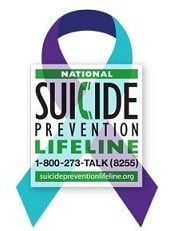Craving is a powerful and at times overwhelming need for alcohol or other drugs.
Craving is a major cause of relapse for people recovering from chemical dependency. Battling intense craving can drain energy and sap strength. Lacking skills and knowledge to deal with cravings, recovering addicts can only last so long before they feel depleted and want to give in. But once they give in to the urge the madness of addiction begins all over again.
Craving is a major problem that plagues many chemically dependent people. Uninterrupted, it often leads to relapse. Most chemically dependent people who relapse report that their inability to cope with craving was the main reason they went back to using the drug. Therefore, recovering people need to focus on craving and its management.
HOW CRAVING BEGINS
When we think of craving what comes to mind? Most of us think of the gut-wrenching need to pick up our drug of choice and use. We’re so preoccupied with this we forget that craving is a process. We need to think and focus on the things that set us up to experience craving in the first place. It is important to understand the three stages of craving:
- SET-UP BEHAVIORS
- TRIGGER EVENTS
- THE CRAVING CYCLE
SYMPTOMS OF CRAVING
One of the most frequent and disturbing symptoms of craving is flashback euphoria. One might feel as if he or she has used drugs when he or she hasn’t. This usually happens at night when we’re in a light sleep. We wake up and actually feel as if we’ve used. Sometimes we might see drug paraphernalia lying next to our bed but it’s not really there. Sometimes we wake up feeling hung over.
Another powerful symptom is physical anguish. This anguish can make us irritable and over reactive. This may include heart palpitations, elevated blood pressure, rapid pulse, sweating, or shortness of breath.
Another symptom of craving is the drug dream. These are three-dimensional dreams in which we sense the taste, smell, or sensation associated with the drug.
STAGE ONE OF CRAVING
SET-UP BEHAVIORS THAT LEAD TO CRAVING
Set-up behaviors are a combination of physical, psychological, and social factors that lower our resistance so that craving overcomes us much more easily. Five common physical set-ups for craving are:
- Brain dysfunction from chemical use
- Poor diet
- Excessive use of caffeine and nicotine
- Lack of exercise
- Poor stress management
- Brain dysfunction from chemical use. Chemical use damages the brain! The physical damage that occurs varies depending on the type of substance and quantities used. This physical damage heals slowly over time. It leaves us physically set-up to experience powerful cravings. Nothing else needs to occur. If we don’t do specific things to avoid cravings we will have them.
- Poor diet. Recovering addicts are often nutritional disaster areas. Many of us live on junk food and have no idea what a balanced meal consists of. Many recovering people have eating disorders as well.
- Excessive use of caffeine and nicotine. Caffeine and nicotine are both mild stimulants. They are not as powerful as cocaine or other stimulants however they can reactivate cravings for stronger highs. We should eliminate as much of these substances as possible. Many herbal supplements contain stimulants as well.
- Lack of exercise. Exercise is vitally important for everyone. It is extremely important for people in recovery. Aerobic exercise reduces the intensity of craving. It is one of the few protections we can use against cravings. Weight training is an excellent way to reduce stress for which a recovering person has a low tolerance. Find an activity that is enjoyable that you can participate in three or more times per week for at least twenty minutes.
- Poor stress management. When we don’t manage stress appropriately in recovery, we increase the risk of craving by becoming stress-sensitive. Meditation and relaxation are good ways to reduce stress.
Four major psychological ways we set ourselves up for craving are:
1.Euphoric recall
2.“Awfulizing” sobriety
3.Magical thinking about future use
4.Denial
- Euphoric recall. We have a tendency to remember and exaggerate the pleasurable experiences of past drug use while blocking out painful or unpleasant experiences. This is a powerful phenomenon for recovering people. We have powerful conditioned responses associated with drug use. Various things activate euphoric recall, especially associating with active users.
- Awfulizing sobriety. When we awfulize something, we notice all the negatives and exaggerate them while we block out all the positives. It’s easy in early recovery to look at all the negatives of being sober while blocking out all of the positives. In early recovery most of have no idea how to live without using and have not accumulated positive experiences in recovery.
- Magical thinking about future use. Many recovering addicts secretly believe that alcohol and other drug use is still a positive option. Many believe that “the good life includes alcohol and other drug use” in spite of the fact that they have a fatal disease. We may also believe that drugs will work for us in the future. We may think “If only I could use again, I’d feel good, at least for a little while”. Many of us also hold on stubbornly to the belief that using the drug can make us or our situation better, that it can fix our situation. This is a form of magical thinking based on a mistaken belief that chemical use has the power to fix current problems. It is important to identify and correct irrational thoughts that lead to magical thinking such as “life stinks without drugs”, “sobriety is boring” etc.
Looking in the mirror and accepting what we see can be one of the hardest things we ever do. It’s especially hard when the image staring us in the face is painful or doesn’t fit with how we want to see ourselves. Sometimes, the truth is so painful that we avoid it at any cost.
Refusing to accept a painful reality that alters the perception of ourselves is a psychological defense called denial. As human beings, we may use denial to protect ourselves from knowledge, insight or awareness that threatens our self-esteem, mental or physical health, or security.
The term “denial” is often used in the addiction field to describe people who deny substance abuse problems. Denial is the tendency of alcoholics or addicts to either disavow or distort variables associated with their drinking or drug use in spite of evidence to the contrary.
It’s a common misconception that all alcoholics and addicts are in denial. In fact, people have various levels of awareness of their substance use problems and readiness to change behavior. People may recognize certain facts concerning their use, such as number of arrests or how often they drink. At the same time, they may woefully misperceive the impact their use has had on the people around them, their relationships, how they feel about themselves, or the implications of their drinking history.
Some common statements made by alcoholics who deny their disease include: “I could quit anytime I wanted to.” “I’d quit using if people would quit ragging on me.” “If you were in my situation, you’d drink, too.” Typically, the more severe the addiction, the stronger the denial. This is often baffling and frustrating to family members and others who care about the addicted person.






